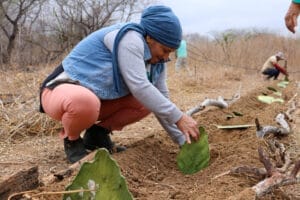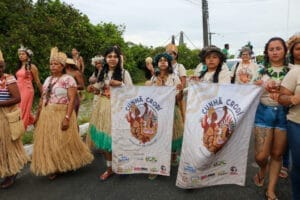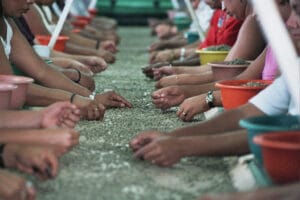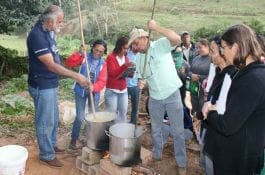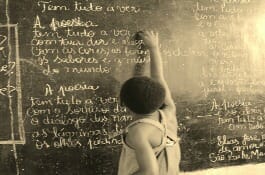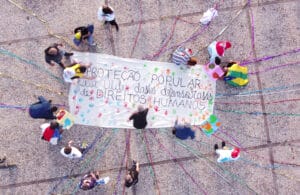
The context The intervention addresses the heightened risks faced by Human Rights Defenders and Civil Society Organizations operating in Brazil.…
Discover moreWeWorld has been working in Brazil since 2008, in particular in the State of Cearà, in the Northeast, in the fields of education, gender rights and equality, socio-economic development and health.
Brazil, with over 210 million inhabitants, is the largest country in South America and the sixth most populous in the world. Its economy is marked by deep social and economic inequalities. The country faces challenges related to politics, the economy, the environment, and human rights.
The COVID-19 pandemic has exacerbated existing problems, negatively impacting social protection and the rights of marginalized groups living in favelas in major cities and indigenous peoples. The expansion of criminal factions and "commands," now controlling small and large municipalities, has brought additional challenges, especially for public security. These factions, founded around drug trafficking, influence the lives of millions of families, limiting access to schools and other public facilities.
Brazil is one of the most dangerous countries for civil society activists, especially those involved in disputes over land and environmental issues. There is an increase in murders and threats against human rights defenders. Conflicts in rural areas, especially in the north and northeast of the country, are frequent and involve disputes over land, water resources, and working conditions. These conflicts are further exacerbated in the Amazon region, where deforestation expansion, illegal mining, and agribusiness intensify tensions over land and natural resources, increasing violence and human rights violations.
The Brazilian Semi-Arid region, called sertão, covering 12% of the national territory, faces challenges such as land concentration, vulnerability to climate change, and food insecurity. Indigenous communities, particularly in the northern areas, face gender discrimination, violence, limitations in access to education, and food insecurity, exacerbating their social and economic exclusion.
In Brazil, we are committed to supporting vulnerable populations, with a special focus on children, women, education, and human rights, strengthening organizations working on these issues. This approach highlights an understanding of the deep social inequalities present in the country.
Through the Solidariedade à Distância (SAD) program, the organization addresses emerging health and education needs, mitigating climate and social impacts on thousands of families facing nutritional risks.
Our initiatives aim to empower organizations operating in violence-affected communities, especially in high-risk areas. We encourage restorative and educational practices as positive responses in areas where homicide and femicide rates are high.
In defense of human rights, we give priority to entities protecting activists in land conflicts and environmental issues, such as in the Amazon. Our mission includes empowering and consolidating the administration of local organizations dedicated to human rights and sustainable development, thus helping safeguard thousands of activists and indigenous communities in disputes with miners and owners of large land areas.
We pay special attention to the territories of the Brazilian Semi-Arid, known for adverse climatic conditions and socio-economic challenges. Through projects focused on WASH programs and sustainable development in isolated rural communities, we seek to alleviate challenges faced by the most vulnerable groups.
We strive to support indigenous communities, often confronted with gender discrimination, violence, and restrictions in access to education and basic resources. This support is essential to combat the social and economic exclusion these communities face.
We’re deeply dedicated to promoting sustainable transformations in the communities it works with, strengthening them against the complex challenges the country faces.
Together for a fairer world.
The context The intervention addresses the heightened risks faced by Human Rights Defenders and Civil Society Organizations operating in Brazil.…
Discover moreThe context The project is designed to address the urgent needs of Climate Change mitigation, improved Water management and Zero…
Discover moreThe context The project focuses on empowering young indigenous women in the semi-arid Caatinga region of Northeast Brazil. This area…
Discover morePerforming research, informing and raising awareness on how the agri-food chain is closely connected to these global crises is the…
Discover moreThe project aims at connecting the experiences of the NGOs involved in the two countries, easing the exchange of know-how…
Discover moreThe program is settled in a remote area, with a high number of families, far from trade centers. As a…
Discover moreThe lack of social inclusion of some parts of the population is an important problem. Community education is one of…
Discover moreThe project operated in the context of the Agrifam project, cofunded by the Italian Ministery of Foreign Affairs and local…
Discover moreThe project reinforced the Gender of the Indio communities, associations and indio’s families in Belo Horizonte.
Discover moreAgrifam supported the family farmers adhering to the Ibiabiocoop agricultural and bio-fuel production cooperative active in the Alto Paranaiba region.
Discover moreThe project supported the local family farmers associations in the southern region of the Bahia state.
Discover more“A School for the Future” guaranteed the good conditions in health and hygiene, accessibility and security, which allowed the community…
Discover more